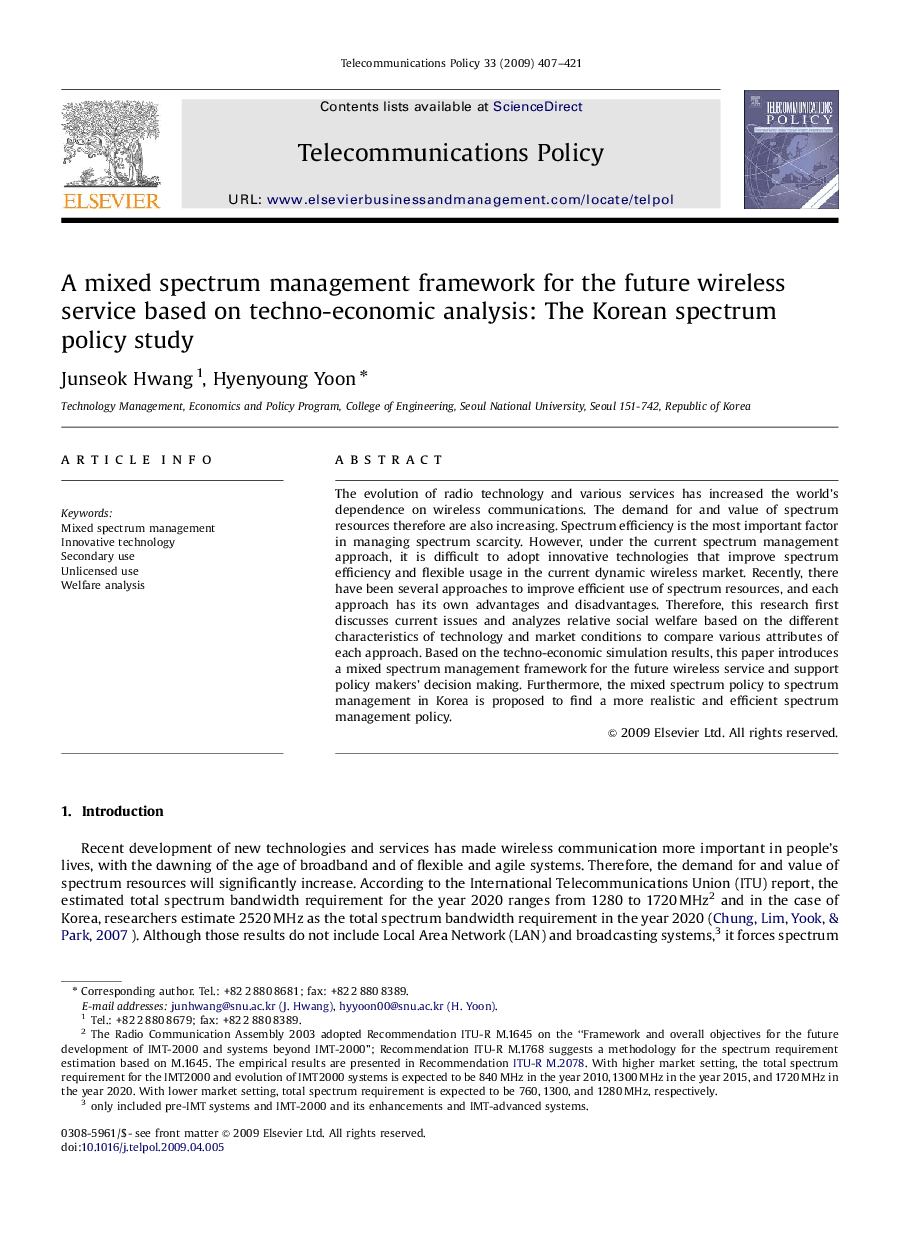| Article ID | Journal | Published Year | Pages | File Type |
|---|---|---|---|---|
| 556824 | Telecommunications Policy | 2009 | 15 Pages |
The evolution of radio technology and various services has increased the world's dependence on wireless communications. The demand for and value of spectrum resources therefore are also increasing. Spectrum efficiency is the most important factor in managing spectrum scarcity. However, under the current spectrum management approach, it is difficult to adopt innovative technologies that improve spectrum efficiency and flexible usage in the current dynamic wireless market. Recently, there have been several approaches to improve efficient use of spectrum resources, and each approach has its own advantages and disadvantages. Therefore, this research first discusses current issues and analyzes relative social welfare based on the different characteristics of technology and market conditions to compare various attributes of each approach. Based on the techno-economic simulation results, this paper introduces a mixed spectrum management framework for the future wireless service and support policy makers’ decision making. Furthermore, the mixed spectrum policy to spectrum management in Korea is proposed to find a more realistic and efficient spectrum management policy.
